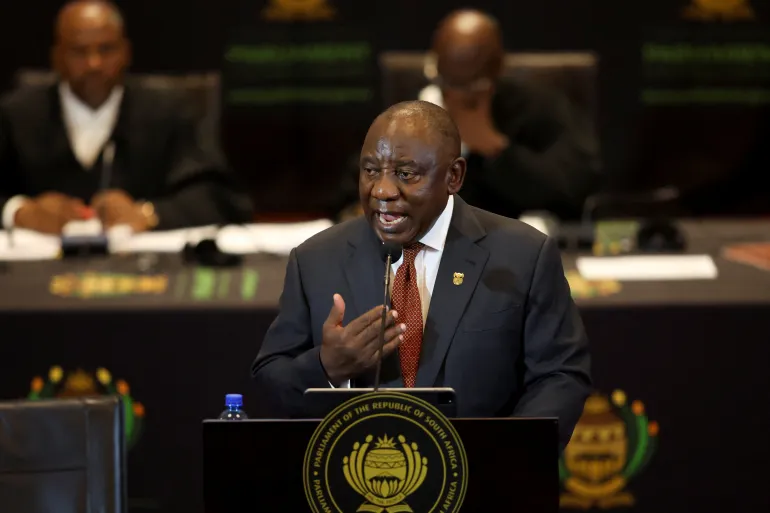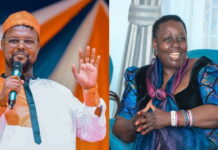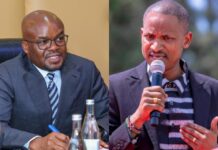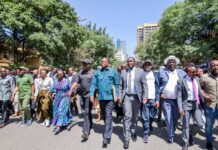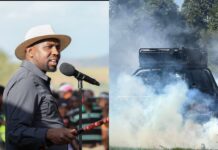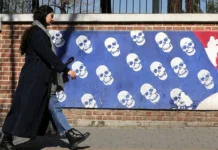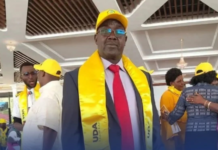Written By Lisa Murimi
South Africa’s parliament has entered a new era marked by political maturity, evident during President Cyril Ramaphosa’s address outlining plans for the coalition government.
The session was notably calm, devoid of the usual interruptions and chaos, a stark contrast to past meetings.
This change follows the African National Congress (ANC) failing to secure more than 50% of the vote for the first time since the democratic era began. As a result, the ANC formed a coalition with nine other political parties.
Former President Jacob Zuma, now leading the uMkhonto weSizwe (MK) party, which was recognized as the official opposition, declined an invitation to attend the session. John Hlophe, the MK leader of the house, promised not to engage in petty politics.
The Economic Freedom Fighters (EFF), known for their disruptive behaviour, vowed to adopt a more constructive approach, with party leader Julius Malema emphasizing positive opposition.
Members of the Democratic Alliance (DA), now part of the coalition, supported Ramaphosa’s hour-long speech, which highlighted priorities such as rapid economic growth, job creation, and tackling the high cost of living.
The ANC, now holding its smallest number of seats in 30 years, agreed to blend its policies with concessions to the DA. Ramaphosa’s address emphasized economic empowerment for black South Africans, significant infrastructure investments, and expanding VAT exemptions on essential food items to combat poverty.
While Ramaphosa’s speech was well-received by some, others, like Action SA’s John Trollip and the EFF’s Malema, criticized it as lacking credibility and transformative plans.
Nevertheless, the coalition government’s formation and the cooperative tone signal a potential new chapter in South African politics.









